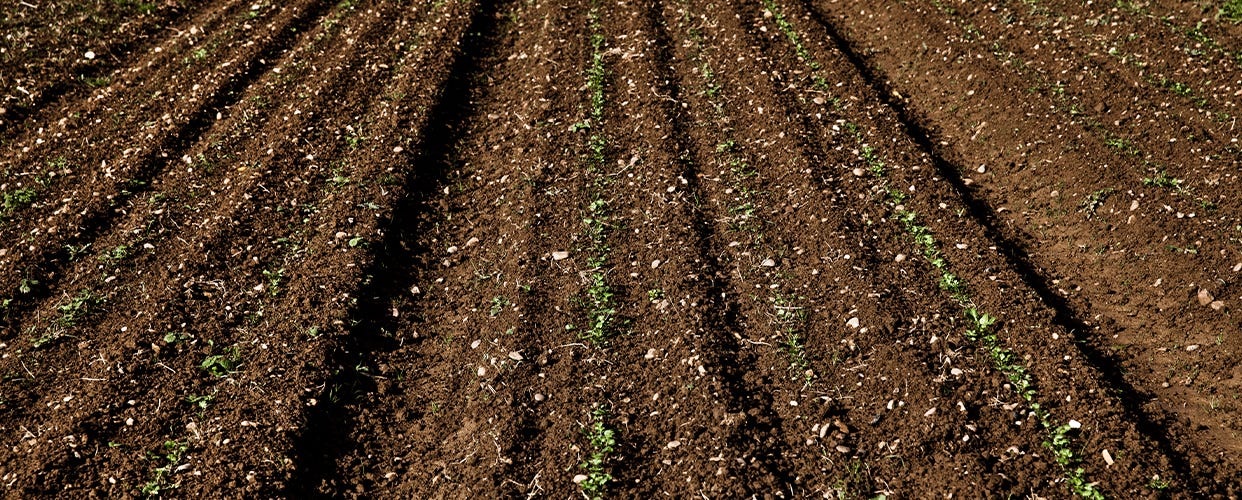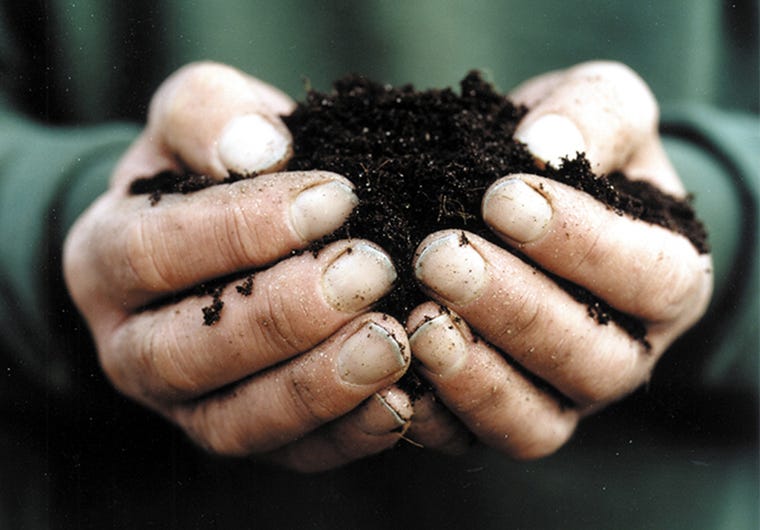
How to Compost
At Daylesford we collect items from our farmshops and cafés such as kitchen scraps (peels, pulp, skins and shells) damaged fruit and vegetables, dead flower and foliage to be composted so they can feed our soil and nurture our crops.
COMPOSTING ENRICHES THE VERY THING THAT WE DEPEND ON FOR SUSTENANCE: OUR SOIL
Composting at home is one of the most sustainable things you can do. Converting waste matter into compost reduces landfill waste, creates healthy soil, increases biodiversity, helps to reduce greenhouse gases and enhances air quality.
In simple terms, composting speeds up the natural decomposition of organic matter, resulting in a magnificent substance that feeds the soil and makes our plants stronger.
Even small gardens can find room for a compost heap, container or bin; in fact it can be a useful receptacle for garden scraps such as leaves, weeds and trimmings.
At Daylesford we collect items from our farmshops and cafés such as juice pulp, coffee grinds and kitchen scraps to be composted so they can feed our soil and nurture our crops.
We also help our soils by making sure our animals have plenty of space and clean pasture so the soil doesn’t become compacted or overgrazed; we grow legumes that build fertility without artificial inputs, which also helps the bees; we try and source as much of our feed and produce from on the farm.
We’re committed to using peat-free compost on our farms and in our Market Garden and are proud to stock peat-free compost in the Daylesford Organic Garden space in the Cotswolds. Peat acts as a carbon store, holding more carbon than the forests of Britain, France & Germany combined. It is an important habitat for many species of wildlife and has a role in water management, holding up to 20 times its weight in water. Peat also serves as an archaeological record of past vegetations, landscapes and people. The mining of the UK's peat bogs and wetlands for peat compost is having a devastating impact on British biodiversity.
Here are some top tips for sustainable composting at home:
- The minimum space for composting should be 1m square
- Aim for your compost heap to be two parts carbon (newspaper, cardboard, straw) to one part nitrogen (vegetable waste, grass)
- Avoid adding perennials (plants and shrubs that have a lifecycle of over two years – dandelions, thistles, bay etc) to your compost as they will take over by rooting
- Do not put meat, dairy or cooked food in your compost to avoid attracting rats and foxes
- Turn your compost over regularly to aerate it and allow it to get wet without losing moisture
- Cover your compost with an old rug or carpet to allow moisture to get in and prevent it evaporating


